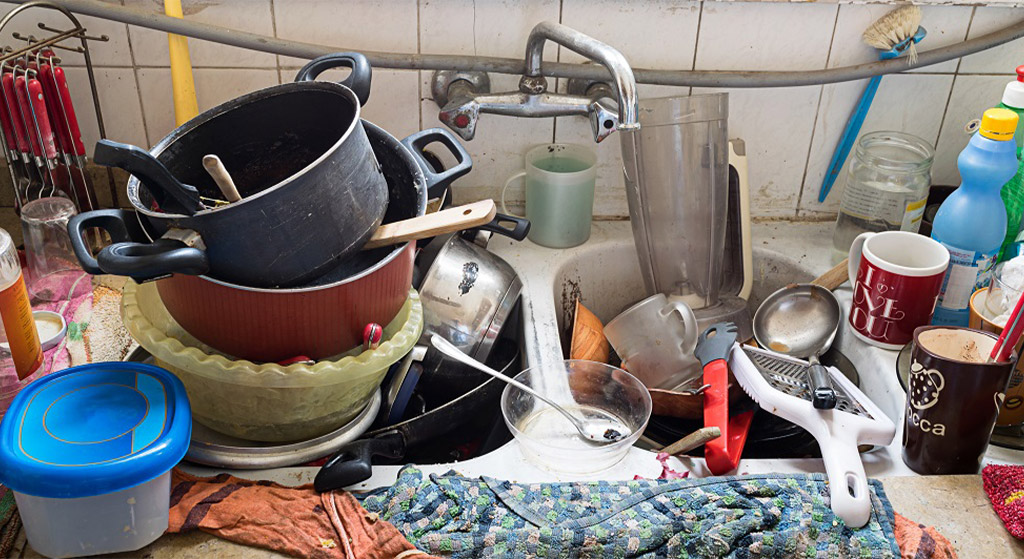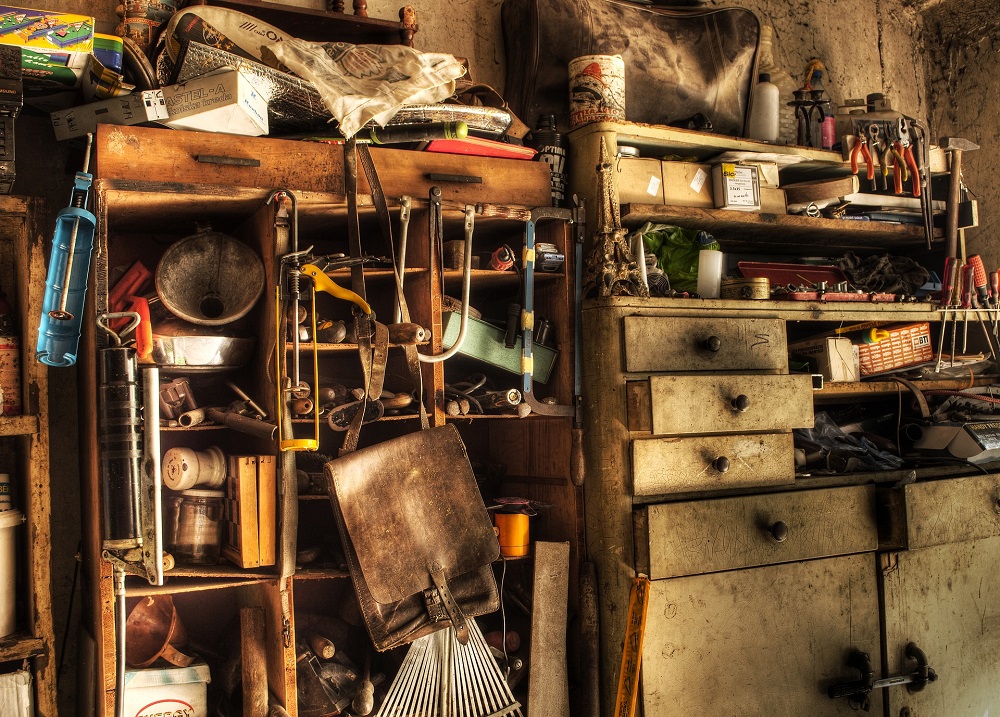
Why Hoarders Have Such A Hard Time Getting Rid Of Their Stuff
Letting go can be difficult, and that’s accurate when it comes to our belongings as well. From boxes filled with old photographs, letters and cards, to basements, attics and garages stuffed to the brim with possessions accumulated over years and years, we all have more stuff than we need. This is especially true when it comes to individuals living with a hoarding disorder.
According to the Anxiety and Depression Association of America, “Hoarding is the persistent difficulty discarding or parting with possessions, regardless of their actual value. The behavior usually has deleterious effects—emotional, physical, social, financial, and even legal—for a hoarder and family members.” While many people who have the compulsion to hold onto stuff feel that urge when it comes to items with emotional attachments or personal value, hoarders often stockpile seemingly useless, garbage-esque things. Think newspapers, plastic bags, boxes, old clothes, magazines, etc.
Hoarding is harmful in a myriad of ways. From a lack of mobility in the home and space to live, to a feeling of personal shame and the deterioration of relationships with family members and friends, compulsive hoarding is no simple complex. It has a lot of repercussions and can make the sufferer feel powerless to it.
Here are some fast facts about hoarding:
- For a long time hoarding has been considered a branch of obsessive-compulsive disorder, but further research has found it may be a completely separate disorder. Hoarding has also been associated with OCPD, ADHD and depression.
- When trying to decide whether or not to throw something out, the orbitofrontal cortex (the region that processes decision-making) and hippocampus (the region that regulates emotions and is associated with memories) of the a hoarder’s brain become active.
- A hoarder’s brain registers the choice of deciding what to throw away as one that is acutely punishing.
- Hoarders experience extreme anxiety when trying to throw things away and often feel like at some point they will have a need or use for that specific item.
- Many hoarders are compulsive shoppers, they compulsively accept free items and they also compulsively search for that perfect, unique item. Or that it may become valuable in the future.
- Hoarders (usually) do not keep their hoarding contained to one part of the home, it is typically seen all throughout the home.
- Hoarding isn’t always things. It can happen with pets too creating an awful animal cruelty situation.
- Hoarding is a chronic illness and there is no cure all for it. Cognitive behavioral therapy is one of the few ways that have been shown to help hoarders. In addition to realistic planning, support and encouragement.
When it comes to relations with friends and family members, there can be a lot of fallout and friction. In an interview with ABC News, compulsive hoarder Lorraine Brennan describes this contention. “Brennan’s hoarding was not only ruining her life but affecting her entire family. Her son couldn’t bring friends home from school. Brennan and her fiancé had been engaged for eight years, but he couldn’t commit to marrying her because of the clutter.”
A hoarder’s home can also fall into disarray very quickly. Not to mention, become dangerous. Since what was once open space is completely taken over by stuff, walking through and navigating one’s own residence can be perilous. Since hoarders generally feel embarrassed about the condition of their home, their homes oftentimes fall into disrepair. For example, if they have broken appliances, or a heat/air conditioning unit that doesn’t work, a broken step on the staircase, etc., they will choose to just live with it instead of getting that problem fixed.
While the media continues to portray hoarders in a less than flattering light, please keep in mind that these are people. Many of whom are suffering from mental disorders, dealing with loss and trying their best to get a handle on this compulsion. Be kind, try to show understanding, and lend a patient hand when asked for help.
Has a loved one of yours, who was a hoarder, passed away and left you responsible for the belongings they left behind? Do you need help junking, donating or storing those belongings? If so, please reach out to us here at Zippboxx. Let us assist you during this somber time.


